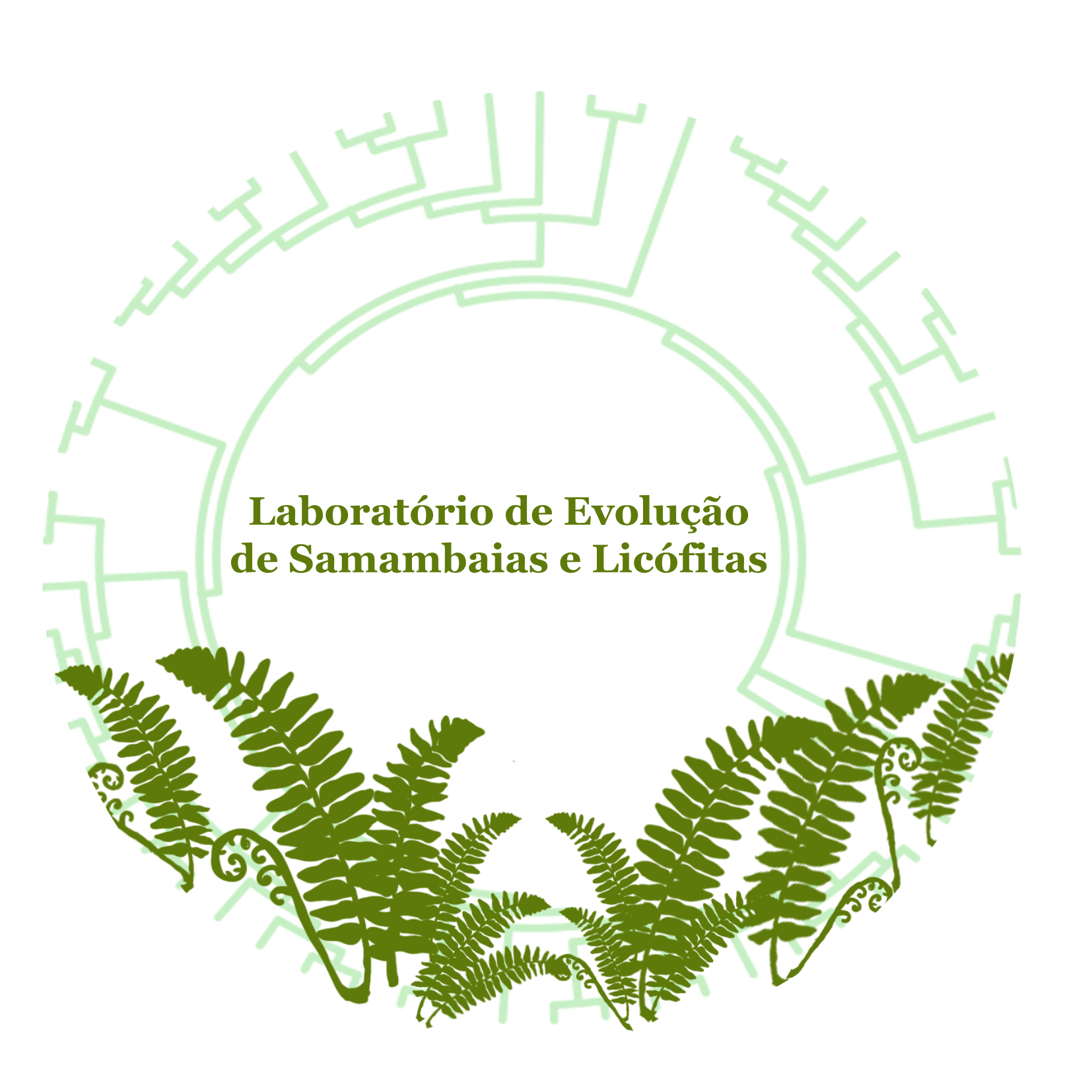
Fern and Lycophyte Evolution Lab
Federal University of Pernambuco | Evolutionary Biology | Ferns and Lycophytes

Federal University of Pernambuco | Evolutionary Biology | Ferns and Lycophytes
Polypodium is one of the least studied genera of epiphytic plants. This project proposes studies to reconstruct the evolutionary and biogeographic history with genomic data to understand the diversification of lineages/species in time and space, as well as to update the taxonomy of the group in the Neotropics.
Members: Thais Elias Almeida - Member / Alexandre Salino - Principal Investigator / Ingridy Oliveira Moura - Member / J. Daniel Tejero-Díez - Member / David Sanín - Member
Species are fundamental within the sciences, used as premises for studies in various areas of basic and applied science. Although it is possible to observe discontinuities between organisms and populations in nature, there is not necessarily a relationship between morphological divergence and lineage separation; however, the definition of species remains biased, focusing on macromorphological characteristics. The use of integrative approaches can help document the true diversity of organisms, accelerating the identification and description of new taxa, and documenting genetic, morphological, and functional diversity to reduce knowledge gaps in the tropics and optimize the balance between conservation and development in the region. This project seeks to investigate the speciation process in six lineages of ferns and lycophytes, relating phylogenetic and phenotypic patterns to delimit species that reflect evolutionary history. Infraspecific phylogenies will be generated from enriched genomic libraries, and phenotypic data (morpho-spectral, nuclear DNA content, and niche models) will be obtained. Based on the recovered clades, we will use comparative methods to infer correlations between phenotypic and environmental characters, and classification analyses to test whether the recovered lineages can be phenotypically discriminated.
Members: Thais Elias Almeida - Principal Investigator / Santiago, Augusto C.P. - Member / Alexandre SALINO - Member / Ashley R. Field - Member / Thiago André - Member / Marise Helen Vale de Oliveira - Member / Ingridy O. Moura - Member / Clarisse Palma-Silva - Member
The origin of phenotypic variation is one of the fundamental questions in macroevolution. The phenotype, a product of the complex interaction between the environment and the genotype, is directly linked to the fitness of organisms and is subject to the action of selection. Furthermore, the set of phenotypic characteristics of a given organism defines or restricts the ecological space where it can survive and reproduce, its niche. Various evolutionary processes can act over time to influence the existence or absence of phenotypic disparity, such as stabilizing or divergent selection, pleiotropy, gene flow, linkage of co-adapted traits, drift, stasis, constraints, or biotic factors like competition, herbivory, etc. This project aims to understand the occupation of phenotypic and environmental space in a comparative phylogenetic context in various lineages of ferns and lycophytes using morphometric, spectral (near-infrared region), and environmental data, and robust phylogenetic inferences obtained through massive DNA sequencing.
Members: Thais Elias Almeida - Principal Investigator / Santiago, Augusto C.P. - Member / Oliveira, Marise Helen Vale de - Member / Carolina do Valle Monteiro Sousa - Member / Keven S. Lima - Member / Niksoney Azevedo Mendonça - Member
Australia is home to 530 species of ferns and lycophytes (2 classes, 14 orders, 32 families, 134 genera, and 530 species and infraspecies) representing 2.5% of the nation's flora and including 7% of plant species in biodiversity legislation (Field 2020 + species published in 2020). The Flora of Australia treatment of ferns and lycophytes was completed over 20 years ago (1998) before the main waves of the phylogenetic and taxonomic informatics revolutions. As a result, many aspects of this treatment have not stood the test of time and require modernisation. Our project will partner the approach of the international Genealogy of Flagellate Plants (GoFlag; http://flagellateplants.group.ufl.edu) project with the national Genomics for Australian Plants (GAP) project plus Australasian and international fern and lycophyte systematics authorities to build a modern phylogenomically informed taxonomic synthesis of the fern and lycophyte Flora of Australia. Our project will generate a world-class target-sequence-capture dataset of 408 nuclear loci from an already-sampled comprehensive collection set of all extant Australian ferns and lycophytes (including oceanic islands), and undertake comprehensive analyses to estimate a whole-of-flora phylogeny. This new synthesis will be used to assess the family, generic, and especially species diversity of ferns and lycophytes in Australia by phylogenomic comparison of Australian species with a massive database of outgroup species produced by the GoFlag project. This international approach is essential to truly quantify the species diversity of the Australian fern and lycophyte flora because 60% of the species are widespread over the Asian or Oceanian region, most endemic species have a non-Australian sister-lineage, and their monophyly with non-Australian counterparts has never truly been tested.
Members: Thais Elias Almeida - Integrante / Ashley R. Field - Coordenador / Daniel Ohlsen - Integrante / Leon Perrie - Integrante / Lara Shepherd - Integrante / Matt Renner - Integrante / Gordon Burleigh - Integrante / Nathalie Nagalingum - Integrante / Emily Sessa - Integrante / Michael Bayly - Integrante